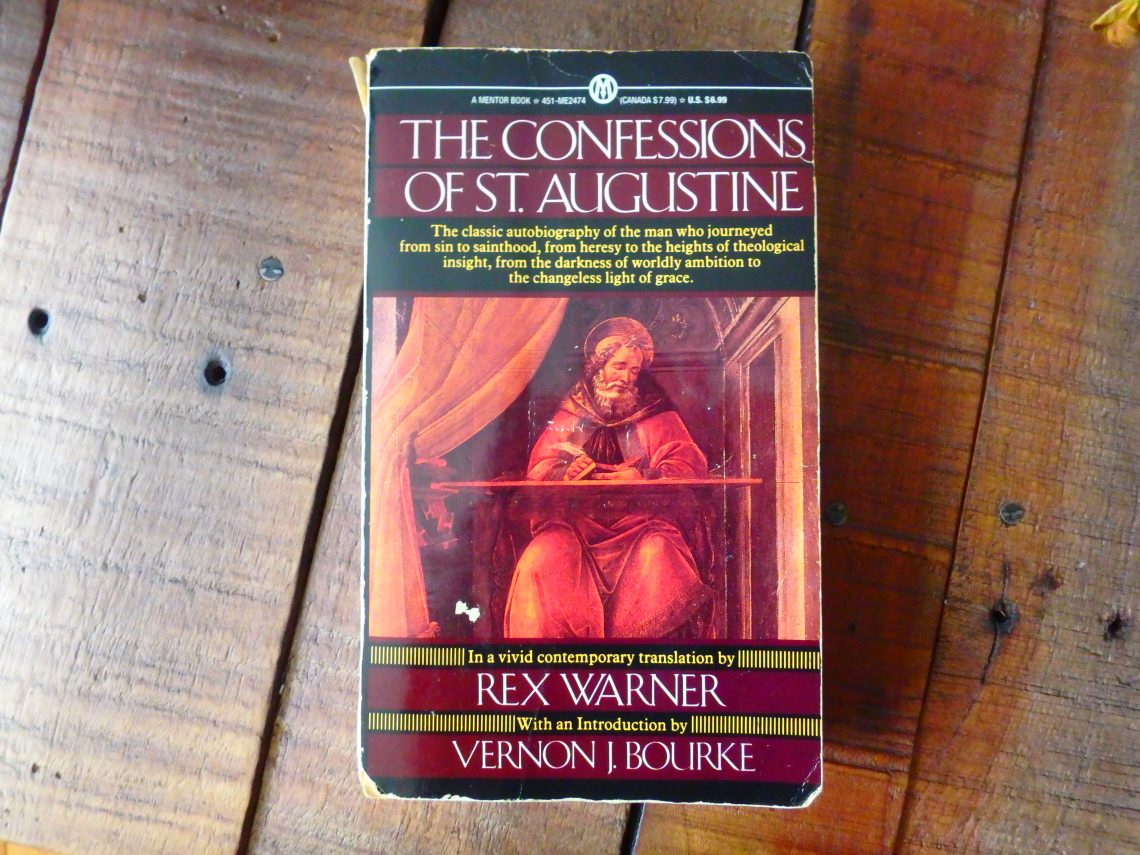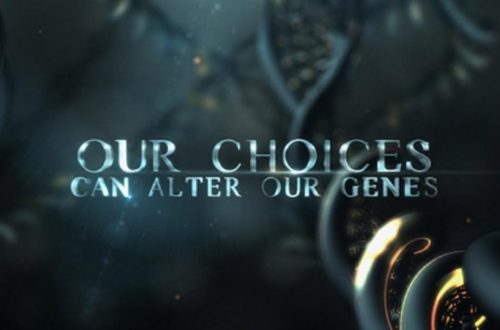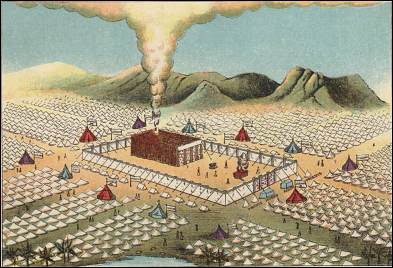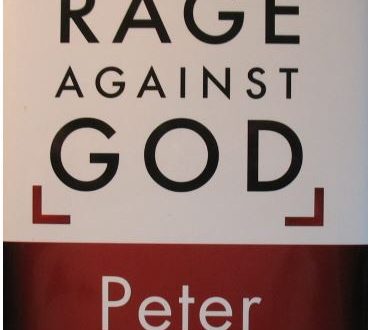
“The Confessions of St. Augustine” (A Conservative Christian Goes to College, part 18)
“Whom could I find to reconcile me to you? Was I to seek the help of angels? By what prayer, what sacraments? Many people in their attempts to return to you and not being able to do so by their own strength have, so I hear, tried this way and have fallen into a desire for strange visions and have become, rightly, the victim of delusions…. They were seeking a mediator through whom to become clean, but this was not he. It was the devil” – “The Confessions of St. Augustine”, Book X, Chapter 42.[1]
World Religions Class.
It was time for our book reviews to be presented in front of the class. The professor had given us a list of books from which to choose. No two students, however, could review the same book. I looked through the list… Ugh! It was filled with so many false religions and false beliefs, from Oprah’s favorite New age guru, Deepak Chopra, to Neale Donald Walsh’s “A Conversation with God” to Bertrand Russell’s “Why I Am Not a Christian”. There were books on Islam, Buddhism, Taoism, Sufism, Kabbalah, Gnosticism, The Upanishads, reincarnation, Native American theology, shamanism, witchcraft, psychics, Feng Shui, yoga, meditation, psychology, etc. I searched and searched for a book that might be Christian. Finally, I saw it: Augustine’s “Confessions.”
Thank you, Lord.
I had read “Confessions” years before, a gift from my father when I asked him to give me five of the greatest Christian books of all time. (See my column here.) I was excited to see at least one book on the list with which a student might read or hear the true Gospel message. However, my young Christian classmate from Belarus, Nadia, had already picked Confessions. I would not be able to do it.
Drat!
But I asked Nadia if she would mind my doing the review of Confessions. I told her that I thought I would be able to use it as a way to witness and speak truth from the front of the class. She, like me, had found it difficult to pick a book. She didn’t want to read any of the cult books either. Yet she was kind and gracious and allowed me to have the Augustine book. I, in turn, steered her toward what was probably the other best possibility, Kierkegaard’s “Fear and Trembling” which deals with Abraham’s willingness to sacrifice Isaac.[2] I was, and am, very thankful that Nadia allowed me this opportunity.
And so the day came for me to give my review.
[The following is less of a column than it is the transcript of my Power Point presentation. I will now allow Augustine to speak for himself for most of the rest of this column.]
First the basics:
Augustine was born November 13th of the year 354 in Tagaste northern Africa, in what today would be Algeria. He was by heritage a Berber. [No, not a barber!] The Berbers, at that time, were the majority population in northern Africa. His parents were named Patricius and Monica. His father was not a Christian believer but his mother was a devout “Catholic”[3] Christian. Augustine lived, studied, and worked in such great ancient cities as Carthage, Milan, and Rome. His search for truth lead him through different philosophies and beliefs including Astrology, Manichaeism, Platonism, and finally Christianity. Augustine converted to Christianity in his early thirties. He became a priest in the city of Hippo, in northern Africa, and then became bishop of that same city in 396 at about the age of 42. His two major works are “Confessions” and “City of God”. He lived long enough to hear of the sacking of Rome by “barbarians”. He died in the year 430 at the age of 76 when the city of Hippo was besieged by the Vandals.
Augustine wrote Confessions as a prayer to God (thus the title), but also for the benefit of others. It is an autobiography, as well as a philosophic treatise on life, sin, self, wisdom, evil, time, creation, God, Christianity, and the Bible. Confessions is filled with quotations from the Bible.
A little perspiration broke out on the professor’s forehead.[4]
And then the class heard Augustine in his own words:
“I want to call back to my mind my past impurities and the carnal corruptions of my soul, not because I love them, but so that I may love you, my God. It is for the love of your love that I do it, going back over those most wicked ways of mine in the bitterness of my recollection so that the bitterness of my recollection may be replaced by the sweetness of you” (Book II, Chapter 1).
“Lord, to your eyes the very depths of man’s conscience are exposed, and there is nothing in me that I could keep secret from you, even if I did not want to confess it. I should not be hiding myself from you, but you from myself. But… when my groaning bears evidence that I am displeased with myself, you shine on me…. I am ashamed of myself and renounce myself, and choose you and, except in you, [I] can please neither you nor myself” (Book X, Chapter 2).
And so Augustine undertook a review of his sinful life:
He began by confessing the sins of his childhood—lying, cheating, stealing, avoiding studies and responsibilities: “Is this what is called ‘the innocence of [childhood]’? Not so, Lord, not so” (Book I, Chapter 19). For “I was shapen in iniquity, and in sin my mother did conceive me” (Book I, Chapter 7, quoting Psalm 51:5). Yes, “Even from birth the wicked go astray; from the womb they are wayward” (Psalm 58:3, NIV).
Augustine then confessed the sins of his adolescence—lusts, fornications, giving in to peer pressure, doing bad things and, simply for acceptance, lying about having done bad things which he hadn’t done. He confessed to sins committed simply for laughter’s sake and sometimes simply to see what could be gotten away with. “What a seduction of the soul and how difficult to track! That out of mere fun and play should proceed an eagerness to hurt and an appetite to do harm to others…. It has only to be said: ‘come on, let’s do it,’ and we become ashamed at not being shameless” (Book II, Chapter 9). “Where was I, and how far was I banished [from you, Lord], in that sixteenth year of my flesh when the madness of lust… held complete sway over me, and to this madness I surrendered myself entirely” (Book II, Chapter 2).
“I came to Carthage, and all around me in my ears were the sizzling and frying of unholy loves. I was not yet in love, but I loved the idea of love…. It was a sweet thing to me both to love and be loved, and more sweet still when I was able to enjoy the body of my lover” (Book III, Chapter 1). “She was one who had come my way because of my wandering desires and my lack of considered judgment…. [It was] a mere pact made between two people whose love is lustful and who do not want to have children” (Book IV, Chapter 2).
As often happens, Augustine fathered a child out of wedlock. The relationship with the child’s mother had to end when he became engaged, but then, though pledged to be married, he kept a woman on the side with whom he could continue to have sexual relations: “The woman with whom I was in the habit of sleeping was torn from my side on the grounds of being an impediment to my marriage…. Since I was not so much a lover of marriage as a slave to lust, I found another woman for myself. In this way my soul’s disease was fed” (Book VI, Chapter 15).
Augustine assessed his youth filled with sin: “I slipped from you and went astray, my God, in my youth… and I became to myself a wasteland” (Book II, Chapter 10).
“For in that youth of mine I was on fire to take my fill of hell. Outrageously in all my shady loves I began to revert to a stage of savagery; my beauty consumed away and I stank in your sight” (Book II, Chapter 1).
“The mind set on the flesh is hostile toward God; for it does not subject itself to the law of God, for it is not even able to do so, and those who are in the flesh cannot please God” (Romans 8:7 & 8, NASB).
Augustine continued on to confess the sins of his early adulthood—pursuit of fame, glory, acceptance, position, and success, continued attachments to the sins of the flesh, sexuality, sensuality, etc.: “Certainly the eye is pleased by beautiful bodies, by gold, and silver and all such things, and in the sense of touch a great part is played by… reciprocity. All other senses too have their own [enjoyments]. Worldly honor also has its… power to command and prevail over others… yet in following all these things, we must not depart from you, Lord, or transgress your law” (Book II, Chapter 5).
He had searched for happiness and lasting joy in all these pursuits and vices, but he had found that nothing permanently satisfied, not friendship, not sexuality, not sensual experience, not beauty, not learning, not achievements, not philosophy, and not religion (sounds like the book of Ecclesiastes, perhaps the first philosophical treatise ever written):
“For whenever man’s soul turns, except toward you, it is fixed to sorrows, even if it fixes itself on things of beauty…. These things of beauty would have no existence at all unless they were from you…. [But] these things go along their path toward nonexistence and they tear and wound the soul with terrible longing, since the soul desires to find rest in what it loves. But in those things there is no place to rest, since they do not stay. They pass away and no one can follow them” (Book IV, Chapter 10).
Augustine’s assessment: Mankind desperately needs God, but instead of seeking Him humanity restlessly searches for fulfillment in things it considers good or beautiful, things which reflect God but are not God.
“So the soul [sins] against you when she turns away from you and tries to find outside you things which, unless she returns to you, cannot be found in their true and pure state” (Book II, Chapter 6).
“There is no one righteous, not even one; there is no one who understands, no one who seeks God. All have turned away. Together they have become worthless. There is no one who does good, not even one” (Romans 3:10-12, NIV).
Then follows one of my very favorite Augustine quotes:
“Return, sinners… to Him who made you…. Where are you going over all those rough paths? Where are you going? The good that you love is from Him; but its goodness and sweetness is only because you are looking toward Him; it will rightly turn to bitterness if what is from Him is wrongly loved. He Himself is being left out of the account. What are you aiming at, then, by going on and on and walking in those tiring ways? There is no rest to be found where you are looking for it. Seek what you seek, but it is not there where you are seeking. You seek the happy life in the country of death. It is not there. For how can life be happy, where there is no life? But [Jesus Christ] our Life came down to us and suffered our death and destroyed death by the abundance of His own life” (Book IV, Chapter 12).
And then for a final ingredient in moving Augustine towards his conversion, the fact and fear of death: “What man can live and not see death, or save himself from the power of the grave?” (Psalm 89:48, NIV). “For death is the destiny of every man; the living should take this to heart” (Ecclesiastes 7:2, NIV). A beloved friend of Augustine’s died and his heart was torn apart: “My heart was darkened over with sorrow, and whatever I looked at was death. My own country was a torment to me; my own home was a strange unhappiness… now that he was gone was sheer torture to me…. For I had no hope that he would come back to life again…. [And as for me] I was at the same time thoroughly tired of living and extremely frightened of dying” (Book IV, Chapters 4, 5, 6). “There was nothing to call me back from the deeper gulf of carnal pleasure, except the fear of death and of judgment to come, and this… never left my mind” (Book VI, Chapter 16).
Augustine was filled with despair beyond earthly consolation:
“I was unhappy and so is every soul unhappy which is tied to its love for mortal things; when it loses them it is torn to pieces, and it is then that it comes to realize the unhappiness which was there even before it lost them” (Book IV, Chapter 6). “I had despaired of man’s being able to find his way to you [God]” (Book V, Chapter 14).
He struggled deeply: “Why then do I delay? Why do I not abandon my hopes of this world and devote myself entirely to the search for God and the happy life? ‘But wait. These worldly things are too sweet; the pleasure they give is not inconsiderable; we must not be too hasty about rejecting them’” (Book VI, Chapter 11).
“I was held back, and I was held back not by fetters put on me by someone else, but by the iron bondage of my own will. From a perverse will came lust, and slavery to lust became a habit, and the habit, being constantly yielded to, became a necessity. These were the links [in my chain], and they held me fast in hard slavery. And the new will, which I was beginning to have… urged me to worship you in freedom and to enjoy you, O God, the only certain joy, was not yet strong enough to overpower the old will. So my two wills, one old, one new, one carnal, one spiritual, were in conflict, and they wasted away my soul by their discord” (Book VIII, Chapter 5).
“I was mad and dying; but there was a sanity in my madness, life in my death; I knew how evil I was; I did not know how well I would be soon” (Book VIII, Chapter 8).
He struggled as in the pains of childbirth: “And I tried to find a way of gaining the strength necessary for enjoying you, and I could not find it until I embraced that Mediator between God and men, the Man Christ Jesus, who is over all, God blessed forevermore, calling to me and saying, I am the way, the truth and the life” (Book VII, Chapter 18, quoting from 1 Timothy 2:5, Romans 9:5, and John 14:6).
And, by the grace of God, Augustine was finally converted:
“So I was sick and in torture. I reproved myself much more bitterly than ever, and turned and twisted my chain…. I was saying inside myself: ‘Now, now, let it be now!’ and as I spoke the words I was already beginning to go in the direction I wanted to go. I nearly managed it, but…. [my favorite sins] were holding me back, pulling me by the garment of my flesh and softly murmuring in my ear: ‘Are you getting rid of us?’ and ‘From this moment shall we never be with you again for all eternity?’ and ‘From this moment will you never for all eternity be allowed to do this or that?’” (Book VIII, Chapter 11). “Then a huge storm rose up within me bringing with it a huge downpour of tears…. I flung myself down on the ground… and gave free reign to my tears… an acceptable sacrifice to Thee. And I kept saying to you, not perhaps in these words, but with this sense: ‘And Thou, O Lord, how long? How long, Lord; wilt Thou be angry forever? Remember not [my sins]’” (Book VIII, Chapter 12, partially quoting Psalm 79:5).
He then heard the voice of a small child in the garden next door singing the words, “Take it and read it,” though he never would recall, even many years later, any adult or children’s song which contained those words. Having heard those words, he picked up the Bible which was lying nearby and opened it. His eyes fell upon this passage: “…not in orgies and drunkenness, not in sexual immorality and debauchery, not in dissension and jealousy. Rather, clothe yourselves with the Lord Jesus Christ…” (Romans 13:13-14). He immediately believed that God had provided him the answer: In Jesus Christ was freedom from the sin which had enslaved and plagued him, in Jesus alone was salvation.
“Everyone who calls on the name of the Lord will be saved” (Romans 10:13, NIV).
“If I had not sought the way to you in Christ, our Saviour [sic], what would have been finished would have been my soul” (Book VII, Chapter 20).
“Whoever believes in the Son has eternal life, but whoever rejects the Son will not see life, for God’s wrath remains on him” (John 3:36).
It had been a lifelong search for Truth, a lifelong search for lasting joy and happiness. He’d sought these in created things and pleasures not ordained for those ends. Neither did he find these things in the philosophers or false religionists. His life was destined for destruction and death, but Jesus Christ became his fountain of life, in Jesus Christ he found forgiveness and freedom.
“I fell away and I was in the dark, but even from there, even from there I loved you. I went astray and remembered you. I heard your voice behind me calling me back, and I could scarcely hear it for all the noise made by those without your peace. And now, look, I return thirsty and panting to your fountain. Let no one hold me back! I shall drink of it, and I shall live of it. Let me not be my own life! I lived evilly of myself; I have been death to myself. I come back to life in you” (Book XII, Chapter 11).
“The Spirit and the bride say, ‘Come!’ And let him who hears say, ‘Come!’ Whoever is thirsty, let him come; and whoever wishes, let him take the free gift of the water of life” (Revelation 22:17).
“And Augustine lived happily ever after… FOREVER. The End.”
I’d been up there making my presentation of, essentially, the Gospel through Augustine’s life and confession. How sorely the truth of the Gospel had been missing from that World Religions classroom. In my journal I wrote, “So, Lord willing, for that brief time there was some truth, some faithful witness to the class.” Yes, it was by the grace of God.
The professor’s written evaluation of my presentation was as follows:
“Good understanding of material and explanations…. Catching the attention of the class…” He did cite me, however, for speaking for more than 15 minutes, the allotted amount of time. (Me? Too wordy? That’s crazy.) By the grace of God, I received an A minus for my presentation.
An overall good day in World Religions Class.
Later, the professor said, essentially, “I wish I would have had you read a book that did not have to do with Christianity.” (Honest truth!)
Next up: My Power Point class presentation reviewing my visit to a Unitarian Universalist Church.
_______________________
Feel free to check out my other columns: https://blogs.bible.org/author/stephen-j-drain/
______________________
All Scripture quotations, unless otherwise indicated, are taken from the HOLY BIBLE: NEW INTERNATIONAL VERSION, NIV. Copyright 1973, 1978, 1984 by the International Bible Society. Used by permission of Zondervan Publishing House. All rights reserved. (Bold, italic, or underlining emphasis added.)
[1] All quotations are from Confessions, translated by Rex Warner, paperback published by Mentor.
[2] I’m never sure what to make of Kierkegaard. Was he a Christian or not? I don’t know enough about him at this point.
[3] It is important for people to know that the word “Catholic” means (quoting from Dictonary.com here): “2. universal in extent; involving all; of interest to all. 3. pertaining to the whole Christian body or church.” Many today confuse the word “Catholic” with “Roman Catholic”, which is kind of an oxymoron. Catholic (pertaining to the universal or world church). Roman (pertaining to the church centered in Rome with the Bishop of Rome—the Pope—presiding). In Augustine’s time we see the beginnings of what we today call Roman Catholicism creeping in. Of course I also see it in the writings of Ignatius and even the Didache as well.
[4] This may not be true, but helps add to the dramatic effect of my story. Please forgive me using artistic license in a real life account. (Or, like Hollywood, I could just say, “Based upon a true story.”)



2 Comments
James C
Augustine’s Confessions – A Reminder of God’s Grace
I want to particularly thank you for this post. As the Lord so often does, He led me here at a time when I needed a fresh reminder of His grace to even the "worst" of sinners
James C
Ann S K
Faith and College
Wonderful read… One of those Roman Catholics whose heart has been opened & enlightened! Perfect for grandchildren going off to college. Very recently a good friend told me a story from his youth…he had been accepted at Yale but was warned by his public HS principal(because he was a Catholic)that he would have to hold on tight to his faith or it could be destroyed at that school. His Mother won out and he went to Fordham University! I knew that a believer in Jesus must have a firm foundation attending a secular college but was very surprised to realize that was true in the late 40's-50's. Thank you!